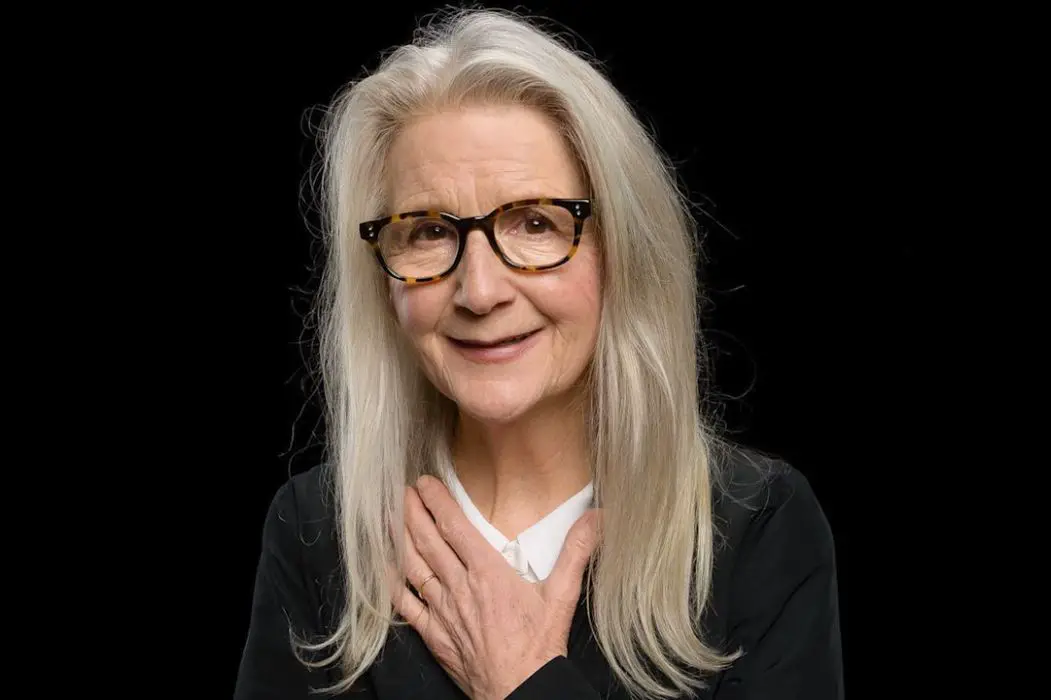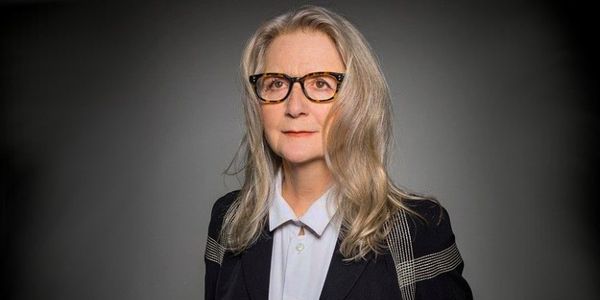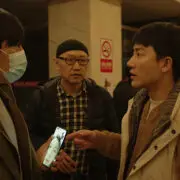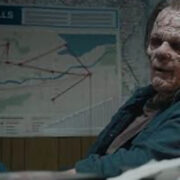Berlinale 2020: Interview With THE ROADS NOT TAKEN Director/Writer Sally Potter

Wilson is a cinema enthusiast based out of Toronto, Canada.…
Sally Potter has been a mainstay of the independent cinema scene for decades, and continues to work tirelessly as a filmmaker. Last month, she returned to the Berlin International Film Festival with her latest effort, The Roads Not Taken (our full review can be found here). As with all of Potter‘s films, she serves as both writer and director, and spoke with Film Inquiry via teleconference about her craft shortly after the festival.
Wilson Kwong for Film Inquiry: My first question is a two-parter. How did you come up with the idea for The Roads Not Taken? And how do you come up with your ideas in general, given how creatively distinctive each of your films tend to be?
Sally Potter: Well, as a general rule, I just find something I’m occupied with and think about it a lot. It’s what drives me toward a particular subject and eventually begins to turn in my head into the basis of a story that I want to pursue. In this instance, it was also provoked by something I was living in my own life. I was close to a very dear friend over a 20 year period who became unable to speak, and I was responsible for her care. I became her translator from her silence into speech when she was trying to communicate with people. And then my younger brother contracted young onset dementia, and also had a lot of communication difficulties. They both passed on in the same time of the year. It was following the intensity of those experiences and across a very long preoccupation with the nature of the mind that led me to start thinking about how I could use some of the things that I had learned. Bearing witness to these people that I had loved and turn it into a story that might be relevant and recognizable to others.
Is this the first time you’ve written a story that is so personal to you?
Sally Potter: I think all films are personal. If you’re writing something, it has to spring from something that means something very deeply to you. And I’ve done that to varying degrees with the films that I’ve made. I’ve always tried to transpose very personal experiences into other shapes and forms. I have never wanted to do something directly and clearly autobiographical, even when they’ve been interpreted that way. So in this case, I deliberately transferred those experiences into a father-daughter relationship. They are not siblings, and it’s a completely different character with absolutely different issues in his life, with even a different country and different language. I took it many steps away from the experiences of my brother, whilst maintaining the authenticity of the experience of somebody living with that illness.

The film actually focuses on a specific subtype of dementia – frontal temporal lobe dementia – which isn’t the kind of dementia most people tend to associate with the disease. Can you about why you chose to focus on this particular subtype of dementia?
Sally Potter: It’s because it was the type that I knew most about. Although my brother had a variant of it and I had already done a lot of research into it, I consulted a neurologist to make sure that everything was clinically correct. Javier Bardem also did his own research and visited a clinic for people with that particular variant of dementia. And he discovered what I knew, that it can take so many different forms and pathways. Most people think dementia is Alzheimer’s, but Alzheimer’s is just one variation of dementia.
The father-daughter relationship is so strong in the film, and the casting of Javier Bardem and Elle Fanning feels perfect. Can you talk about the casting process for this film?
Sally Potter: I cast Javier first because I knew that the clue to making this whole thing work, was to have an actor who would be able to carry these multiple identities within one body. So I cast him first and then thought about the daughter. And since it’s an immigrant story, where the father character’s first language is Spanish, it was cool because Javier himself speaks in Spanish and had an accent. So that was the basis of having him be Mexican. But like so many immigrant families, the next generation who are born in the country, English is their first language. They also behave differently and there’s a cultural gap. So I figured if he had an American wife, then we could have a daughter that looked like somebody who could have come out of that genetic combination. So Laura Linney‘s playing the ex-wife and mother, and thus, I could have one of my favourite actors, Elle Fanning, as his daughter.
And in terms of the on screen relationship between the two of them, did you have rehearsals beforehand? It’s such a strong relationship and performance from both of them.
Sally Potter: It’s very strong, yes. I did what I always do, which is work individually with each actor before putting them together. I find the most important thing is for the actor to get completely rooted in who and what they are as an individual, and then how they behave together comes as a consequence of that. And so that’s what I did, I worked with them individually, and then did a little bit of work with them together after.

Outside of the Berlinale, have you shown the film to any other audience? Specifically, to people who might be able to connect with the circumstances you’re depicting in the film?
Sally Potter: It hasn’t been shown a great deal, but there’s been a few screenings in London and now a few screenings in New York. And what I have found is that after every screening, a bunch of people come up to me and say, “Hey, my father had this. My mother had that.” My this, my that, and it rings true. And so the people who’ve lived some variation of this as a caregiver, or at least as a relative or a friend, it seems to have a lot of meaning.
I’m curious, when you were writing and directing the film, did you have a specific audience in mind?
Sally Potter: A big audience, I always think with every film I do, as having a big audience. And I’m sometimes surprised when they don’t. I’m always aiming wide, and I love the fact that movies are a big media. But what I have learned over the years is that sometimes it takes a while for a movie to find its audience. Sometimes they have a very long life, a long tale, and they don’t necessarily get there straight off. And I’ve been surprised when I go to another country or another continent and find people who know every word of a film that I didn’t even know was distributed there. So I don’t take anything for granted, especially about where it’s going to land. And this one in particular, I have no idea.
I read one of your interviews from a few years ago where you talked about not being the type of person who likes to revisit the past (as a filmmaker). Can you expand on that?
Sally Potter: I don’t very often look at my films after I’ve done them. I’m obsessed with them while I’m making them. But when there’s no more I can do to them, I kind of feel that they don’t belong to me anymore. Really, they belong to the audience. And I’m always interested to hear about planning and plotting the next one. So in that sense, I’m a huge gazer. I’m very monogamous while I’m on a film, it’s like it’s the only film in the world. How dare anyone mention that there is another film in the world! But then, when it comes out in the world, I know it’s one of many, and it will find its way or it won’t. I certainly don’t have any desire to repeat something I’ve done. It takes so long to make these films, and you’re in that universe or that shape for so long that I always want to go and learn something new.
But with a film like The Roads Not Taken, where it’s so personal to you, do you think this might be a project that lingers on a little longer?
Sally Potter: It’ll linger as long as I’m talking about it, and maybe it will linger longer. I don’t know, I will see how it happens. But I do experience all my films as something personal. And I have to say, although this was so personal in that it was provoked by such a strong experience in my own life, it is so not a portrait of my brother. It’s so not autobiographical in that sense. It’s just the feelings behind it, that feeling of the aching sort of love and compassion for somebody who you love that is having this difficulty.
Film Inquiry thanks Sally Potter for taking the time to speak with us.
Does content like this matter to you?
Become a Member and support film journalism. Unlock access to all of Film Inquiry`s great articles. Join a community of like-minded readers who are passionate about cinema - get access to our private members Network, give back to independent filmmakers, and more.
Wilson is a cinema enthusiast based out of Toronto, Canada. He escapes from his day job by writing random thoughts about cinema on the internet. Although he has a longstanding penchant for Hong Kong cinema, he considers himself to be an advocate for Asian cinema in general. He has been attending the Toronto International Film Festival every year since 2005, and more of his work can be found on his website: www.wilson-kwong.com.













